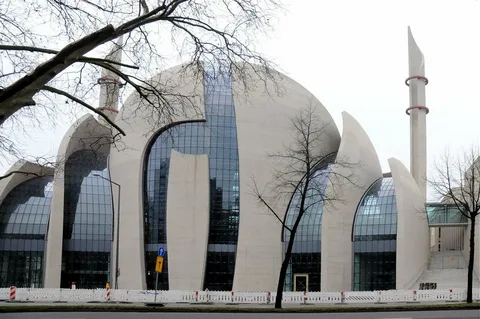Mosques play a crucial role in the social and spiritual life of Muslims in Germany, serving as centers for worship, community gathering, and cultural exchange. The German state’s treatment of mosques and the support they receive reflect broader efforts to integrate and respect diverse religious practices within the country. This article provides a comprehensive overview of the importance of mosques in Germany, their role in society, and how the German government supports them.
1. The Role of Mosques in German Society
Spiritual and Community Hub:
Mosques in Germany are much more than places of worship. They serve as vital community centers where Muslims gather for daily prayers, Friday sermons, and religious festivals. Beyond spiritual activities, mosques often host educational programs, social services, and cultural events, which contribute to the well-being and cohesion of the Muslim community.
Cultural Integration:
Mosques also play a significant role in bridging cultural gaps between Muslim immigrants and the broader German society. They act as spaces where cultural traditions are preserved and celebrated, fostering intercultural dialogue and understanding. Through various events and activities, mosques help promote multiculturalism and social harmony.
Support and Guidance:
In addition to spiritual guidance, mosques provide essential services such as counseling, support for new immigrants, and assistance with social and legal issues. They often run charitable programs, including food banks and shelters, supporting not only their own members but also those in need across the wider community.
2. The German State’s Treatment of Mosques
Legal Framework:
Germany guarantees freedom of religion under its constitution, which includes the right to establish and maintain places of worship. This constitutional protection extends to mosques, allowing them to operate freely and contribute to the country’s religious and cultural diversity.
Regulatory Oversight:
While mosques enjoy legal protections, they are subject to the same regulatory oversight as other religious institutions. This includes adherence to building codes, safety regulations, and local zoning laws. Mosques must also comply with general regulations concerning public health and safety.
Challenges and Tensions:
Despite these protections, mosques in Germany have faced challenges, including local opposition to their construction and occasional incidents of vandalism or discrimination. Such tensions often arise from broader issues of integration and cultural differences. The German state addresses these challenges through dialogue and policy measures aimed at promoting religious tolerance and social cohesion.
3. State Support for Mosques
Financial and Institutional Support:
The German government does not directly fund mosques but provides support through various channels. For example, Islamic organizations can receive funding for social and educational projects from federal and state grants. Additionally, some mosques benefit from partnerships with local governments for community-based programs.
Dialogue and Collaboration:
The German state engages in dialogue with Islamic organizations and mosque representatives to address community concerns and foster mutual understanding. This collaboration often includes interfaith initiatives, where mosques participate in broader discussions about integration, social issues, and community development.
Educational and Social Initiatives:
Mosques are involved in educational and social initiatives that align with national goals of integration and community support. Programs sponsored or supported by local governments may include language courses, job training, and youth activities, which help integrate Muslim communities into the broader society.
4. The Impact of State Support
Enhanced Community Relations:
State support and engagement with mosques have contributed to improved relations between Muslim communities and the broader German society. By addressing concerns and fostering cooperation, the German state helps build a more inclusive and harmonious society.
Strengthened Social Services:
With state support for various social initiatives, mosques are better equipped to provide essential services to their communities. This support enhances their ability to address social issues, such as unemployment and social exclusion, thereby contributing to overall community well-being.
Promoted Intercultural Dialogue:
Collaborative efforts between mosques and state institutions promote intercultural dialogue and understanding. By participating in discussions and initiatives that involve diverse stakeholders, mosques play a role in shaping a more inclusive and respectful society.
Mosques in Germany are vital to the spiritual, cultural, and social life of the Muslim community. They serve as centers of worship, community support, and cultural integration. The German state’s treatment of mosques reflects a commitment to religious freedom and multiculturalism, with various forms of support aimed at fostering social cohesion and understanding. Through legal protections, dialogue, and indirect support, the German government and mosques work together to contribute to a more inclusive and harmonious society.
